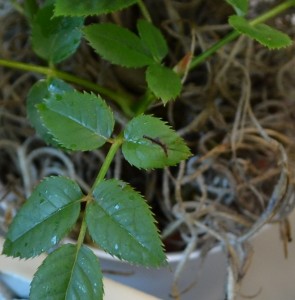Plant Villains and Superheroes
Out of the approximately 1,000,000 animals that scientists have discovered and classified, about 800,000 are insects! The good news is that only about .5% of them are harmful to your landscape. The even better news is that some of those harmful pests can be managed with the help of all those good insects and without the use of chemicals. Here is a quick breakdown of some of the most destructive garden pests and their natural enemies.
Aphids vs. Ladybugs, Brown & Green Lacewing, and Syrphid Fly
These little guys are one of the most common and destructive pests in your garden. Aphids have soft bodies and are usually less than a quarter of an inch long. There are many different species and they can be a variety of colors. Aphids feed on young plant growth by sucking the juices out of it. This can cause new growth to become distorted. Look for aphids on the undersides of leaves that are curled.
The bad thing about being an aphid is that almost every other insect wants to eat you. Ladybugs, Brown & Green Lacewings and their larvae all prefer aphids. Ladybugs do not have a lady sized appetite for aphids, either. In fact, an adult ladybug can eat up to 1000 aphids a day!
Spider Mites vs. Predatory Mites
This particular pests is not actually an insect but is more closely related to spiders. Spider mites are usually invisible to the naked eye but leave white spots on leaves where, like the aphid, it drinks plant juices.
There are several species of predatory mites. These differ from spider mites in that they are typically larger and more active. They have large, piercing mouthparts to catch the spider mite before consumption.
Caterpillars vs. The Assassin Bug
While caterpillars don’t seem that harmful to your garden, each monarch caterpillar will consume 20 large leaves before making it’s cocoon. For small plants, caterpillars can be especially destructive.
The assassin bug aptly gets its name from the long pointed mouthpart that the bug uses to stab its prey before consumption. Assassin bugs eat any soft body insect including caterpillars, some types of worms, roaches, etc. Be sure to handle this bug with care though. While, it does not typically harm humans, it will bite if it feels threatened.
Remember that if you have questions about a topic related to plants and landscape design, let us know and we will feature the subject in our next blog. If you have any questions or would like to schedule a free estimate, email us or give us a call at 407-935-9151.


Comments